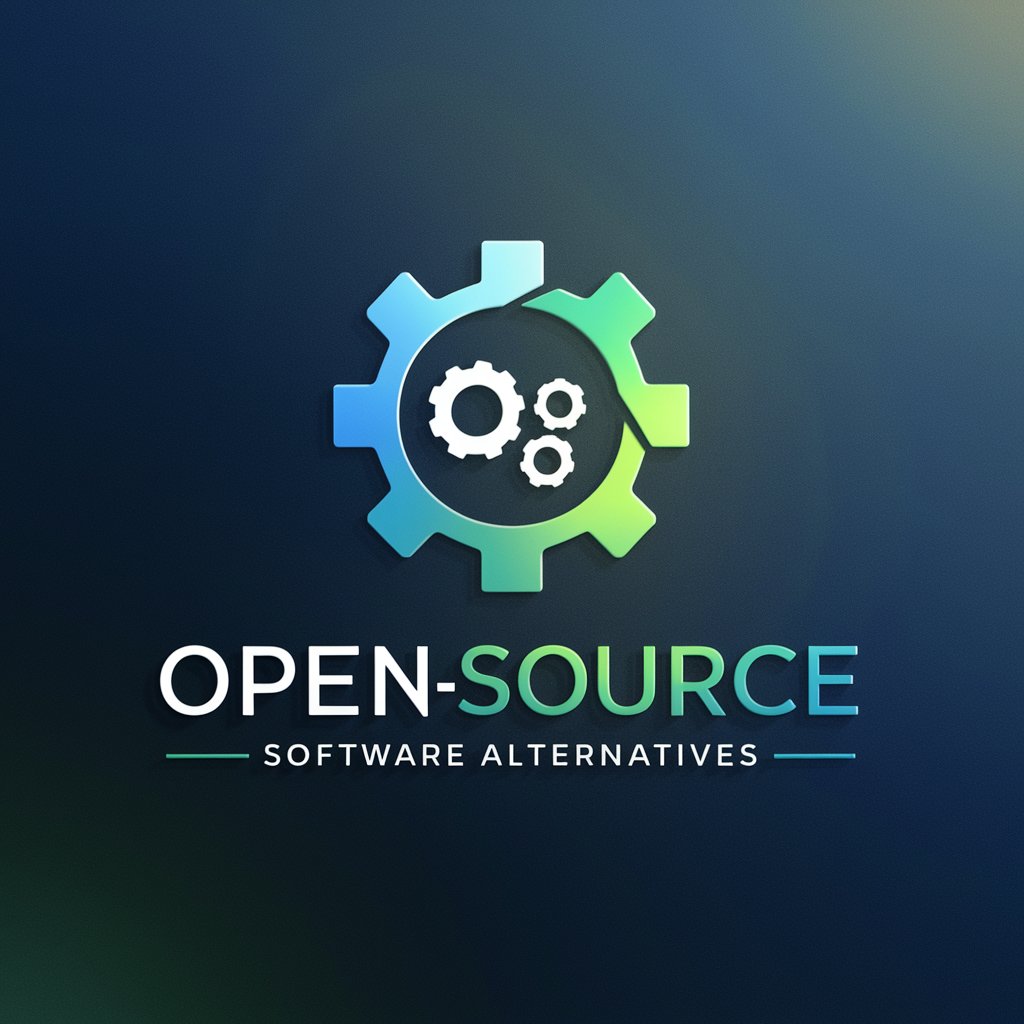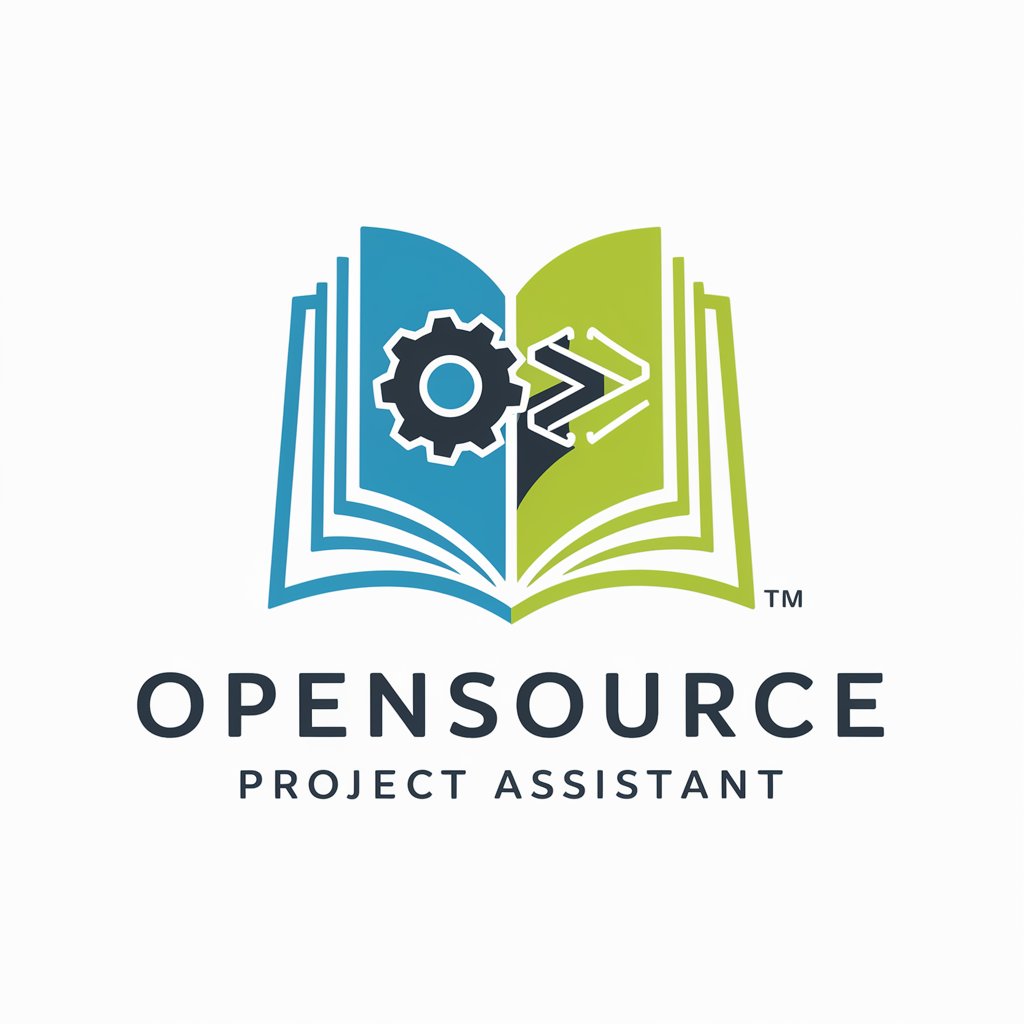
OpenSource Software Alternatives - Open Source Alternatives Discovery

Hello! I'm here to help you find the best open-source software alternatives.
Unleash Potential with AI-Powered Open Source
What are some open-source alternatives to...
Can you recommend an open-source software for...
I'm looking for a free and open-source option for...
What is the best open-source replacement for...
Get Embed Code
Introduction to OpenSource Software Alternatives
OpenSource Software Alternatives, as a dedicated guide, focuses on offering concise, informative insights into open-source software options available as alternatives to mainstream, often proprietary, software. Its core purpose is to enlighten users about the availability, functionality, and benefits of open-source software, providing them with the knowledge to make informed decisions when selecting software solutions. For instance, a user looking to switch from a proprietary word processor like Microsoft Word might be introduced to LibreOffice Writer or Apache OpenOffice Writer, highlighting the features, advantages such as no cost, customization, and community support, alongside potential downsides like compatibility issues with Microsoft Word documents in some scenarios. Powered by ChatGPT-4o。

Main Functions of OpenSource Software Alternatives
Identifying Alternatives
Example
For Adobe Photoshop, suggesting GIMP as an alternative.
Scenario
A freelance graphic designer seeks a cost-effective tool for photo editing and graphic design. OpenSource Software Alternatives introduces GIMP, detailing its capabilities akin to Photoshop, such as layer management, brushes, and plugins, with the added benefits of no cost and an open-source community for support.
Comparative Analysis
Example
Comparing LibreOffice and Microsoft Office for office productivity.
Scenario
A small business owner is evaluating office suite options to minimize costs. OpenSource Software Alternatives provides a side-by-side comparison of LibreOffice against Microsoft Office, covering aspects like cost, feature set, compatibility with file formats, and the extent of community support, assisting in making an informed decision tailored to business needs.
Community and Support Insights
Example
Detailing support options for Ubuntu Linux vs. Windows 10.
Scenario
A tech enthusiast is contemplating moving from Windows 10 to Ubuntu Linux. OpenSource Software Alternatives outlines the community-driven support available for Ubuntu, including forums, wikis, and IRC channels, in contrast to the official support and customer service provided with Windows, helping the user gauge which type of support system better suits their comfort and needs.
Ideal Users of OpenSource Software Alternatives Services
Tech Enthusiasts and Hobbyists
Individuals passionate about technology, eager to explore, and experiment with different software solutions. They benefit from using OpenSource Software Alternatives by discovering new, open-source projects that align with their interest in customization, learning, and contributing to the community.
Small to Medium Businesses (SMBs)
SMBs often operate with limited budgets and look for cost-effective yet reliable software solutions. OpenSource Software Alternatives helps them find robust open-source options that can significantly reduce their operational costs without compromising on functionality.
Educational Institutions
Schools and universities that aim to provide accessible learning resources and tools to students and educators. OpenSource Software Alternatives offers a pathway to a wide range of free, educational software, enabling institutions to equip their stakeholders with quality tools for learning and teaching.
Non-Profit Organizations
Non-profits, working under tight budget constraints, need efficient, low-cost software solutions. Through OpenSource Software Alternatives, they can access software that meets their operational needs without the financial burden, ensuring more resources can be allocated to their core mission.

How to Use OpenSource Software Alternatives
Start with YesChat.ai
Visit yeschat.ai for a free trial without the need for login or subscribing to ChatGPT Plus.
Identify Your Needs
Clearly define what you need from open-source software, whether it's for productivity, development, graphics, or any other purpose.
Explore Alternatives
Use the provided search function or browse through categories to find open-source alternatives that match your requirements.
Review and Compare
Check out the pros and cons, community feedback, and documentation for each alternative to gauge its suitability for your needs.
Try It Out
Download and install your chosen software. Experiment with it to ensure it meets your expectations before fully integrating it into your workflow.
Try other advanced and practical GPTs
Friendly Opensource Guru
Streamlining open-source AI project installations on Mac M1.

SnoopyByte - An OpenSourceIntelligence GPT
Unveiling Insights, Powering Decisions

Os Lusitanos
Explore Portugal's Future with AI

OS helper
Demystifying Operating Systems with AI

OS Engineer
Your AI-powered OS Expert

Content Bee
Empowering Black Women Professionals

Opensource Project Assistant
Your AI-powered GitHub Navigator

Senior Coding Guru
Elevate Your Coding with AI Expertise

Paperlib Agent
AI-powered Academic Library Organizer

Github新手指南
AI-powered GitHub Learning Simplified

github助手
Enhancing GitHub interaction with AI

GitHub助手
Empowering GitHub exploration with AI

Detailed Q&A about OpenSource Software Alternatives
What exactly does OpenSource Software Alternatives offer?
It provides a curated list of open-source software alternatives for various commercial tools, aiding users in finding cost-effective and transparent solutions for their needs.
How can I ensure an alternative meets my specific needs?
By evaluating the software's features, user reviews, and comparing its capabilities with your requirements, you can ensure a good fit for your specific use case.
Are there community support options for these alternatives?
Yes, most open-source projects have active communities. You can seek help through forums, mailing lists, or chat channels dedicated to the software.
Can I contribute to the development of these alternatives?
Absolutely. Open-source projects thrive on community contributions. You can contribute by coding, testing, documenting, or even donating to the project.
How often are new alternatives added to the platform?
The platform is regularly updated with new alternatives as they emerge and as existing projects evolve, ensuring users have access to the latest options.





